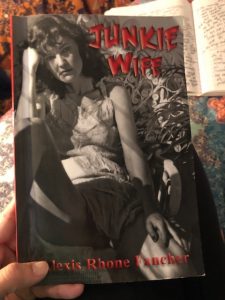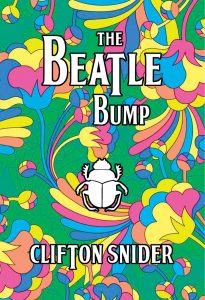Review: The Moon, My Lover, My Mother, & The Dog
Randomly inspired and yet meticulously woven, The Moon, My Lover, My Mother, & The Dog, written by Daniel McGinn, is so fervently raw, it serves as a glimpse inside the process of a poet coming to fruition. “I don’t know what to write about I tell her…” McGinn states upon the opening of his second collection of poetry. “Just follow the light she says/the light is free to go wherever it wants she says/as she goes to the candle she keeps on the table/and lights its brittle wick.”
At once honest and masterfully written, McGinn effortlessly leads readers down a rabbit hole of poetic snap-shots and slice-of-life reveries that range from the complexities of childhood to the inevitability of death within the span of pages. In the poem “Mother Laughing,” McGinn effectively resurrects his mother in a stream-of-consciousness piece that juxtaposes the memory of her making strawberry ice cream to the vast feeling of emptiness the poet experiences as he mirrors her same behaviors, albeit, without her. “Roll it with the scoop your mother owned, it’s been in the kitchen drawer for at least 40 years. It belongs in your hand. Some things never change.” By reconstructing a memory with language, as well as highlighting the subliminal effects this memory has on the author, McGinn delicately forges a new line between past and present, grief and remembrance, and solidifies the idea that just because someone is gone, it does not mean they are forgotten.
Perhaps one of the most unique aspects of The Moon, My Lover, My Mother, & The Dog, is its sequencing structure, which is determined by content, and not traditional linear timelines. In the “The Passenger,” McGinn discusses a conversation he had with his father while driving a Grand Prix. “Every time you win two hands in a row, double your bet. Play your cards right, I do and that’s how I got this fine automobile…” In the subsequent poem, “The Mountain,” the author contrasts this moment with a darker one he experiences in his own truck, as an adult. “I cussed and smudged-up the inside of my window in hard circles like I’d smudged-up my life and I felt older than this beat-up tuck, which was all I could afford.” By breaking the fourth wall of the page, and allowing readers to have a more intimate view of a poet’s inner monologue, these concepts, loosely woven into recurring images, allows the collection to move as fast as the timing of life. Blink, and it’s over, the reader left to flurry the pages, reaching for whatever he or she might have missed from in-between the lines.



